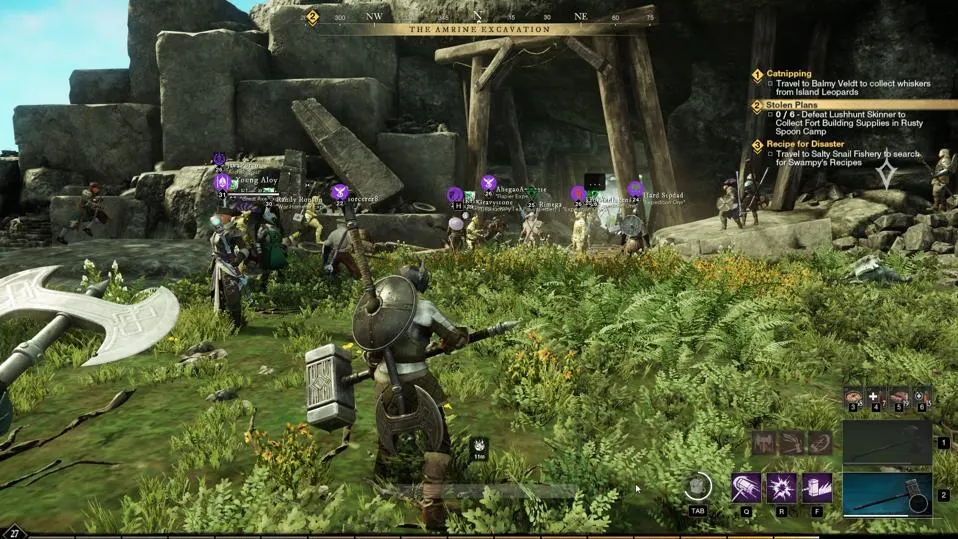Orwell: Ignorance Is Strength is the second installment of the Orwell series, developed by Osmotic Studios and published by Fellow Traveller. This dystopian surveillance game continues the themes introduced in its predecessor, Orwell: Keeping an Eye on You, exploring the chilling implications of state-sponsored surveillance, propaganda, and the erosion of personal freedoms. This review delves into the gameplay, narrative, and overall experience of Orwell: Ignorance Is Strength, with a particular focus on how it enhances the original concept.
Overview of Orwell: Ignorance Is Strength
Introduction to the Orwell Series
Orwell: Ignorance Is Strength is part of a larger narrative universe that began with Orwell: Keeping an Eye on You. The series is set in a fictional world where government surveillance is omnipresent, and the state has unprecedented power over its citizens. Players assume the role of an investigator working for “The Office,” tasked with uncovering information about individuals deemed threats to national security.
Plot and Storyline of Orwell: Ignorance Is Strength
The storyline of Orwell: Ignorance Is Strength picks up after the events of the first game. The player is now part of a secret government program called “Ignorance is Strength,” aimed at controlling the narrative and maintaining order by manipulating public perception. The game explores themes such as fake news, media manipulation, and the ethical dilemmas surrounding state control.
Gameplay Mechanics and Features
Surveillance and Information Gathering
The core gameplay of Orwell: Ignorance Is Strength revolves around surveillance and information gathering. Players sift through various digital sources, including social media, private messages, and news articles, to collect data on key individuals. The information gathered is then used to influence public opinion or justify state actions.
Decision-Making and Consequences
One of the standout features of Orwell: Ignorance Is Strength is the emphasis on decision-making. The choices players make have far-reaching consequences, affecting not only the lives of the characters but also the broader political landscape. This mechanic encourages players to think critically about the ethical implications of their actions.
New Features and Improvements
Orwell: Ignorance Is Strength introduces several new features that enhance the gameplay experience. These include more complex narrative branching, additional sources of information, and improved AI behavior. The game also offers more opportunities for players to manipulate information, adding a new layer of strategy to the experience.
Narrative Themes and Social Commentary
The Role of Media in Orwell: Ignorance Is Strength
One of the central themes of Orwell: Ignorance Is Strength is the role of media in shaping public opinion. The game explores how information can be manipulated to serve the interests of those in power, raising questions about the integrity of the media and the impact of propaganda.
Ethical Dilemmas in Surveillance
Orwell: Ignorance Is Strength delves into the ethical dilemmas associated with surveillance. The game challenges players to consider the morality of their actions, forcing them to confront the consequences of their decisions on both a personal and societal level.
Parallels to Real-World Issues
The themes explored in Orwell: Ignorance Is Strength are particularly relevant in today’s world, where issues such as privacy, government surveillance, and media manipulation are increasingly prominent. The game offers a stark reminder of the potential dangers of unchecked state power and the importance of safeguarding personal freedoms.
Visuals, Sound, and Atmosphere
Art Style and Visual Design
Orwell: Ignorance Is Strength features a minimalist art style that complements its narrative themes. The visuals are clean and functional, with a focus on the user interface that mimics real-world surveillance tools. The design choices reinforce the game’s atmosphere of control and observation.
Soundtrack and Audio Effects
The game’s soundtrack is subtle yet effective, adding to the tension and unease that permeates the experience. Audio effects, such as the sound of typing or the beep of a notification, are used sparingly but contribute to the immersive atmosphere of the game.
Creating a Dystopian Atmosphere
The combination of visuals and sound in Orwell: Ignorance Is Strength creates a convincing dystopian atmosphere. The game’s world feels oppressive and controlled, reflecting the themes of surveillance and state power that are central to the narrative.
Comparing Orwell: Ignorance Is Strength with Its Predecessor
Evolution of Gameplay Mechanics
Orwell: Ignorance Is Strength builds on the gameplay mechanics introduced in the first game, offering a more refined and complex experience. The introduction of new features, such as enhanced decision-making and more diverse information sources, represents a natural evolution of the original concept.
Narrative Depth and Complexity
The narrative of Orwell: Ignorance Is Strength is more intricate than that of its predecessor, with a greater emphasis on the consequences of the player’s actions. The game’s branching storylines offer multiple outcomes, encouraging replayability and deeper engagement with the themes.
Enhancements in Visuals and Audio
While the visual and audio design of Orwell: Ignorance Is Strength remains consistent with the first game, there are subtle improvements that enhance the overall experience. The art style is more polished, and the soundtrack is more atmospheric, contributing to a more immersive experience.
Criticisms and Areas for Improvement
Repetitive Gameplay Elements
One of the main criticisms of Orwell: Ignorance Is Strength is the potential for repetitive gameplay. While the game’s mechanics are engaging, the process of sifting through information and making decisions can become monotonous over time, particularly for players who are not deeply invested in the narrative.
Limited Player Agency
Another area of critique is the perceived lack of player agency. Despite the emphasis on decision-making, some players may feel that their choices have limited impact on the overall narrative. This can detract from the sense of immersion and reduce the replayability of the game.
Pacing and Narrative Flow
The pacing of Orwell: Ignorance Is Strength can be uneven at times, with periods of intense decision-making followed by slower sections that may feel drawn out. This can affect the overall flow of the narrative and make the experience less engaging for some players.
Final Verdict on Orwell: Ignorance Is Strength
Strengths of the Game
Orwell: Ignorance Is Strength is a thought-provoking game that offers a compelling exploration of surveillance, media manipulation, and the ethical dilemmas associated with state power. The game’s narrative depth, combined with its innovative gameplay mechanics, makes it a standout title in the dystopian genre.
Weaknesses and Limitations
Despite its strengths, Orwell: Ignorance Is Strength is not without its flaws. The potential for repetitive gameplay and the limited impact of player choices may detract from the overall experience for some players. However, these issues do not overshadow the game’s achievements in storytelling and thematic exploration.
Who Should Play Orwell: Ignorance Is Strength?
Orwell: Ignorance Is Strength is recommended for players who enjoy narrative-driven games with a focus on social commentary. Fans of dystopian fiction, as well as those interested in the ethical implications of surveillance and media control, will find much to appreciate in this title. However, players looking for fast-paced action or high levels of player agency may find the game less appealing.
FAQ About Orwell: Ignorance Is Strength
What is Orwell: Ignorance Is Strength?
Orwell: Ignorance Is Strength is a narrative-driven surveillance game where players assume the role of a government investigator tasked with collecting and manipulating information to maintain state control. It is the second installment in the Orwell series.
How does Orwell: Ignorance Is Strength differ from its predecessor?
Orwell: Ignorance Is Strength builds on the mechanics of the first game, offering more complex narrative branching, additional information sources, and improved AI behavior. The game also places a greater emphasis on the consequences of the player’s decisions.
What are the main themes of Orwell: Ignorance Is Strength?
The game explores themes such as government surveillance, media manipulation, propaganda, and the ethical dilemmas associated with state control. It draws parallels to real-world issues, making it a relevant and thought-provoking experience.
Is Orwell: Ignorance Is Strength a standalone game?
While Orwell: Ignorance Is Strength can be played as a standalone game, players who are familiar with the first installment may have a deeper understanding of the narrative and characters. However, the game does provide enough context for new players to enjoy the experience.
What are the system requirements for Orwell: Ignorance Is Strength?
Orwell: Ignorance Is Strength is available on PC and requires a moderate system setup. The minimum requirements include an Intel Core i3 processor, 4GB of RAM, and an integrated graphics card. The game is optimized for low-end systems, making it accessible to a wide range of players.
How long does it take to complete Orwell: Ignorance Is Strength?
The game typically takes around 4 to 6 hours to complete, depending on the player’s choices and how thoroughly they explore the narrative. Multiple playthroughs may be required to experience all the possible outcomes.
Can Orwell: Ignorance Is Strength be replayed?
Yes, Orwell: Ignorance Is Strength offers replayability through its branching narrative and multiple endings. Players can make different decisions on subsequent playthroughs to explore new storylines and outcomes.
Is there a sequel to Orwell: Ignorance Is Strength?
As of now, there is no official announcement



